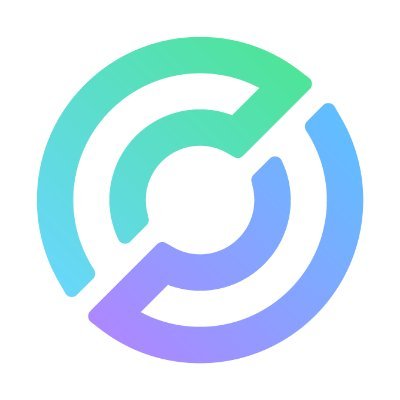Circle Wallet vs CoinSpot Wallet Comparison
In today's digital market, the trend of cryptocurrency has flooded the financial sector. With thousands of crypto coins available for trade, the necessity of a safe and secure digital wallet has gained paramount importance. The article will delve into a comparison between two major crypto-wallets - Circle Wallet and CoinSpot Wallet, to assist users in making an informed choice.
| Company | ||
|---|---|---|
| User rating | 5 user reviews | 16 user reviews |
| Cryptogeek rating | ||
| Trust Score How it works |
About
|
Circle is an easy to use wallet providing an opportunity to buy, transfer and save digital money. The full name of the application was Circle Invest wallet. Its mobile version can be found on Google Play and Apple Store.
|
Coinspot wallet is a special service provided by Coisnpot exchange. It provides a hot wallet for every coin its exchange is currently trading. Alongside with crypto, it also supports the Australian Dollar. Currently ,CoinSpot wallet has more than 60 coins and tokens. Built-in exchange is an additional feature of the wallet as well as 2FA for the additional security. The only language available is English.
|
Founding Date
| 2013 | 2013 |
Country
| USA | Australia |
Languages
| English | English |
Wallet type
| Software wallet | Software wallet |
Storage type
| Cold wallet | Hot wallet |
Private keys
| Not available | Not available |
Available coins
| 6 - Bitcoin (BTC), USD Coin (USDC), Ethereum (ETH), Stellar (XLM), Algorand (ALGO), Solana (SOL) | 149 - Bitcoin (BTC), Basic Attention Token (BAT), IOTA (MIOTA), Tezos (XTZ), Ethereum Classic (ETC), NEO (NEO), VeChain (VET), OmiseGO (OMG), Qtum (QTUM), Verge (XVG), Lisk (LSK), ICON (ICX), Ontology (ONT), Bitcoin Gold (BTG), Zcash (ZEC), Nano (NANO), Populous (PPT), Bytecoin (BCN), Steem (STEEM), Wanchain (WAN), Siacoin (SC), Dogecoin (DOGE), Waves (WAVES), Zilliqa (ZIL), Decred (DCR), Aeternity (AE), Status (SNT), 0x (ZRX), Loopring (LRC), Komodo (KMD), Aion (AION), Golem (GNT), Ardor (ARDR), IOST (IOST), DigiByte (DGB), Ark (ARK), Waltonchain (WTC), aelf (ELF), PIVX (PIVX), Factom (FCT), Dragonchain (DRGN), Substratum (SUB), Mithril (MITH), Syscoin (SYS), Gas (GAS), Elastos (ELA), Voyager Token (VGX), FunFair (FUN), Nxt (NXT), Nebulas (NAS), Nucleus Vision (NCASH), OByte (GBYTE), ReddCoin (RDD), Revain (REV), WAX (WAX), SALT (SALT), Electroneum (ETN), MaidSafeCoin (MAID), Power Ledger (POWR), Zcoin (XZC), Enigma (ENG), Storj (STORJ), TenX (PAY), Neblio (NEBL), Cindicator (CND), Skycoin (SKY), Horizen (ZEN), Civic (CVC), SingularityNET (AGI), POA Network (POA), Nexus (NXS), GameCredits (GAME), Dent (DENT), Vertcoin (VTC), Quantstamp (QSP), iExec RLC (RLC), Decentraland (MANA), Polymath (POLY), Po.et (POE), Loom Network (LOOM), NULS (NULS), Enjin Coin (ENJ), Raiden Network Token (RDN), Metal (MTL), Arcblock (ABT), Pundi X (NPXS), SIRIN LABS Token (SRN), Bluzelle (BLZ), Genesis Vision (GVT), THETA (THETA), NavCoin (NAV), Gifto (GTO), Comet (CMT), AirSwap (AST), OST (OST), Scry.info (DDD), Ripio Credit Network (RCN), Streamr DATAcoin (DATA), Quantum Resistant Ledger (QRL), AdEx (ADX), UTRUST (UTK), Einsteinium (EMC2), Ambrosus (AMB), Groestlcoin (GRS), WePower (WPR), Peercoin (PPC), Crypterium (CRPT), USD Coin (USDC), Ripple (XRP), Binance Coin (BNB), Bitcoin Cash (BCH), Bitcoin SV (BSV), Cardano (ADA), Cosmos (ATOM), Dash (DASH), EOS (EOS), Ethereum (ETH), Litecoin (LTC), Monero (XMR), NEM (XEM), Stellar (XLM), Tether (USDT), Tron (TRX), Polkadot (DOT), BitTorrent (BTT), Terra (LUNA), pTokens BTC (PBTC), Crypto.com Coin (CRO), Filecoin (FIL), FTX Token (FTT), Kusama (KSM), Algorand (ALGO), NEAR Protocol (NEAR), Ocean Protocol (OCEAN), Celo (CELO), Energy Web Token (EWT), Quant (QNT), Hedera Hashgraph (HBAR), Solana (SOL), Helium (HNT), IoTeX (IOTX), TomoChain (TOMO), Chiliz (CHZ), Ankr (ANKR), IRISnet (IRIS), SUN (SUN), Hive (HIVE), Unibright (UBT), Fantom (FTM) |
Security
| No data | No data |
Anonymity
| No data | No data |
Ease of use
| No data | No data |
Has attached card
| No data | No data |
Has trading facilities
| No data | No data |
Has vouchers and offers
| No data | No data |
Features
| No data | No data |
| About |
Circle is an easy to use wallet providing an opportunity to buy, transfer and save digital money. The full name of the application was Circle Invest wallet. Its mobile version can be found on Google Play and Apple Store.
|
Coinspot wallet is a special service provided by Coisnpot exchange. It provides a hot wallet for every coin its exchange is currently trading. Alongside with crypto, it also supports the Australian Dollar. Currently ,CoinSpot wallet has more than 60 coins and tokens. Built-in exchange is an additional feature of the wallet as well as 2FA for the additional security. The only language available is English.
|
|---|---|---|
| Founding Date | Founding Date 2013 | Founding Date 2013 |
| Country | Country USA | Country Australia |
| Languages | Languages English | Languages English |
| Wallet type | Wallet type Software wallet | Wallet type Software wallet |
| Storage type | Storage type Cold wallet | Storage type Hot wallet |
| Private keys | Private keys Not available | Private keys Not available |
| Available coins | Available coins 6 - Bitcoin (BTC), USD Coin (USDC), Ethereum (ETH), Stellar (XLM), Algorand (ALGO), Solana (SOL) | Available coins 149 - Bitcoin (BTC), Basic Attention Token (BAT), IOTA (MIOTA), Tezos (XTZ), Ethereum Classic (ETC), NEO (NEO), VeChain (VET), OmiseGO (OMG), Qtum (QTUM), Verge (XVG), Lisk (LSK), ICON (ICX), Ontology (ONT), Bitcoin Gold (BTG), Zcash (ZEC), Nano (NANO), Populous (PPT), Bytecoin (BCN), Steem (STEEM), Wanchain (WAN), Siacoin (SC), Dogecoin (DOGE), Waves (WAVES), Zilliqa (ZIL), Decred (DCR), Aeternity (AE), Status (SNT), 0x (ZRX), Loopring (LRC), Komodo (KMD), Aion (AION), Golem (GNT), Ardor (ARDR), IOST (IOST), DigiByte (DGB), Ark (ARK), Waltonchain (WTC), aelf (ELF), PIVX (PIVX), Factom (FCT), Dragonchain (DRGN), Substratum (SUB), Mithril (MITH), Syscoin (SYS), Gas (GAS), Elastos (ELA), Voyager Token (VGX), FunFair (FUN), Nxt (NXT), Nebulas (NAS), Nucleus Vision (NCASH), OByte (GBYTE), ReddCoin (RDD), Revain (REV), WAX (WAX), SALT (SALT), Electroneum (ETN), MaidSafeCoin (MAID), Power Ledger (POWR), Zcoin (XZC), Enigma (ENG), Storj (STORJ), TenX (PAY), Neblio (NEBL), Cindicator (CND), Skycoin (SKY), Horizen (ZEN), Civic (CVC), SingularityNET (AGI), POA Network (POA), Nexus (NXS), GameCredits (GAME), Dent (DENT), Vertcoin (VTC), Quantstamp (QSP), iExec RLC (RLC), Decentraland (MANA), Polymath (POLY), Po.et (POE), Loom Network (LOOM), NULS (NULS), Enjin Coin (ENJ), Raiden Network Token (RDN), Metal (MTL), Arcblock (ABT), Pundi X (NPXS), SIRIN LABS Token (SRN), Bluzelle (BLZ), Genesis Vision (GVT), THETA (THETA), NavCoin (NAV), Gifto (GTO), Comet (CMT), AirSwap (AST), OST (OST), Scry.info (DDD), Ripio Credit Network (RCN), Streamr DATAcoin (DATA), Quantum Resistant Ledger (QRL), AdEx (ADX), UTRUST (UTK), Einsteinium (EMC2), Ambrosus (AMB), Groestlcoin (GRS), WePower (WPR), Peercoin (PPC), Crypterium (CRPT), USD Coin (USDC), Ripple (XRP), Binance Coin (BNB), Bitcoin Cash (BCH), Bitcoin SV (BSV), Cardano (ADA), Cosmos (ATOM), Dash (DASH), EOS (EOS), Ethereum (ETH), Litecoin (LTC), Monero (XMR), NEM (XEM), Stellar (XLM), Tether (USDT), Tron (TRX), Polkadot (DOT), BitTorrent (BTT), Terra (LUNA), pTokens BTC (PBTC), Crypto.com Coin (CRO), Filecoin (FIL), FTX Token (FTT), Kusama (KSM), Algorand (ALGO), NEAR Protocol (NEAR), Ocean Protocol (OCEAN), Celo (CELO), Energy Web Token (EWT), Quant (QNT), Hedera Hashgraph (HBAR), Solana (SOL), Helium (HNT), IoTeX (IOTX), TomoChain (TOMO), Chiliz (CHZ), Ankr (ANKR), IRISnet (IRIS), SUN (SUN), Hive (HIVE), Unibright (UBT), Fantom (FTM) |
| Security | Security No data | Security No data |
| Anonymity | Anonymity No data | Anonymity No data |
| Ease of use | Ease of use No data | Ease of use No data |
| Has attached card | Has attached card No data | Has attached card No data |
| Has trading facilities | Has trading facilities No data | Has trading facilities No data |
| Has vouchers and offers | Has vouchers and offers No data | Has vouchers and offers No data |
| Features | Features No data | Features No data |
Social
Website
| www.circle.com | twitter.com |
| @circlepay | CoinSpot |
| Website | Website www.circle.com | Website twitter.com |
|---|---|---|
| Twitter @circlepay | Twitter CoinSpot |
Advantages
| - 13 crypto coins | - Easy to use and secure - Trusted |
Disadvantages
| - Risks related to investment | - The platform can only be used by Australian residents - A deposit with a card has a 1% charges fee |
Rating
| User rating | User rating 5 user reviews | User rating 16 user reviews |
|---|---|---|
| Cryptogeek rating | Cryptogeek rating | Cryptogeek rating |
| Advantages | Advantages - 13 crypto coins | Advantages - Easy to use and secure - Trusted |
| Disadvantages | Disadvantages - Risks related to investment | Disadvantages - The platform can only be used by Australian residents - A deposit with a card has a 1% charges fee |
Circle Wallet user rating is 4.8, based on 5 user reviews. CoinSpot Wallet user rating is 4.3, based on 16 user reviews.
We also calculate the special Cryptogeek TrustScore based on the characteristics of each wallet.
| We choose the winner based on our TrustScore Rating. Please remember, it’s still up to you which company to choose! How do we calculate Trust Score? |
In conclusion, both Circle Wallet and CoinSpot Wallet have their unique features and offerings in terms of currency support, fees, security, and customer support. Your individual requirements as for a user will play a critical role in deciding which one is a better fit. It is important to perform extensive research and weigh up the pros and cons before making a final decision. Remember, the crypto world is thrilling but also volatile, due care must be taken while diving into it.
In today's digital market, the trend of cryptocurrency has flooded the financial sector. With thousands of crypto coins available for trade, the necessity of a safe and secure digital wallet has gained paramount importance. The article will delve into a comparison between two major crypto-wallets - Circle Wallet and CoinSpot Wallet, to assist users in making an informed choice.

